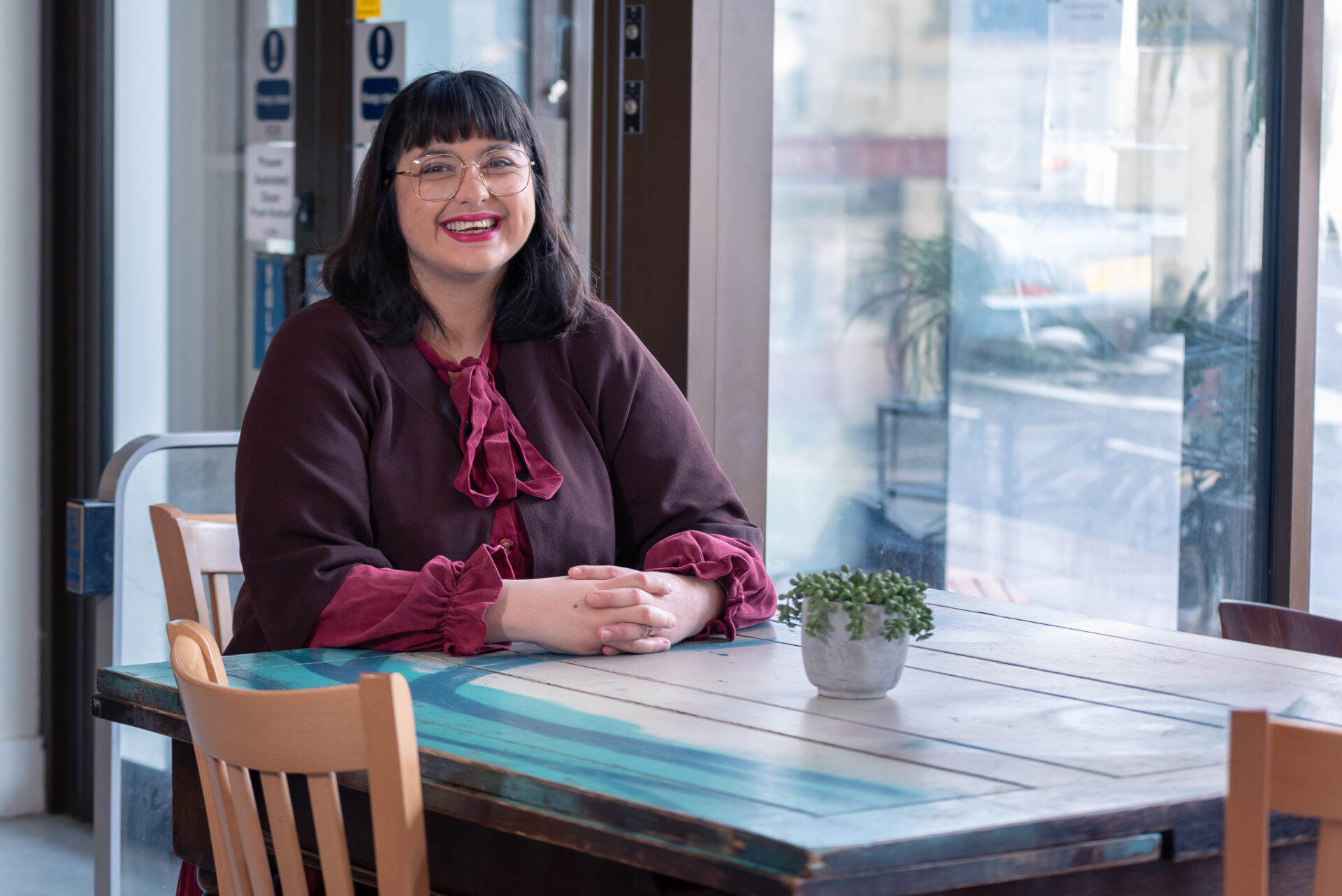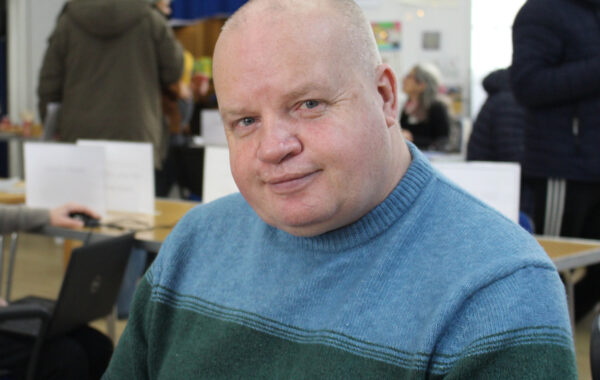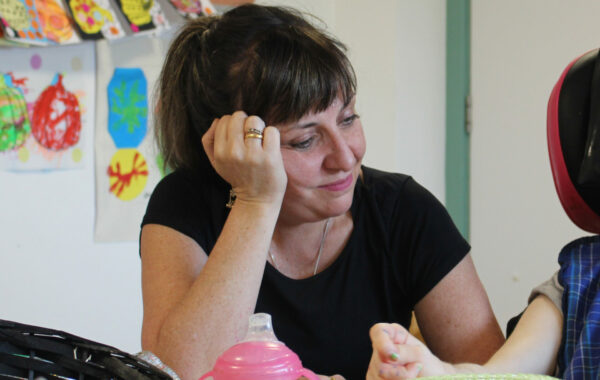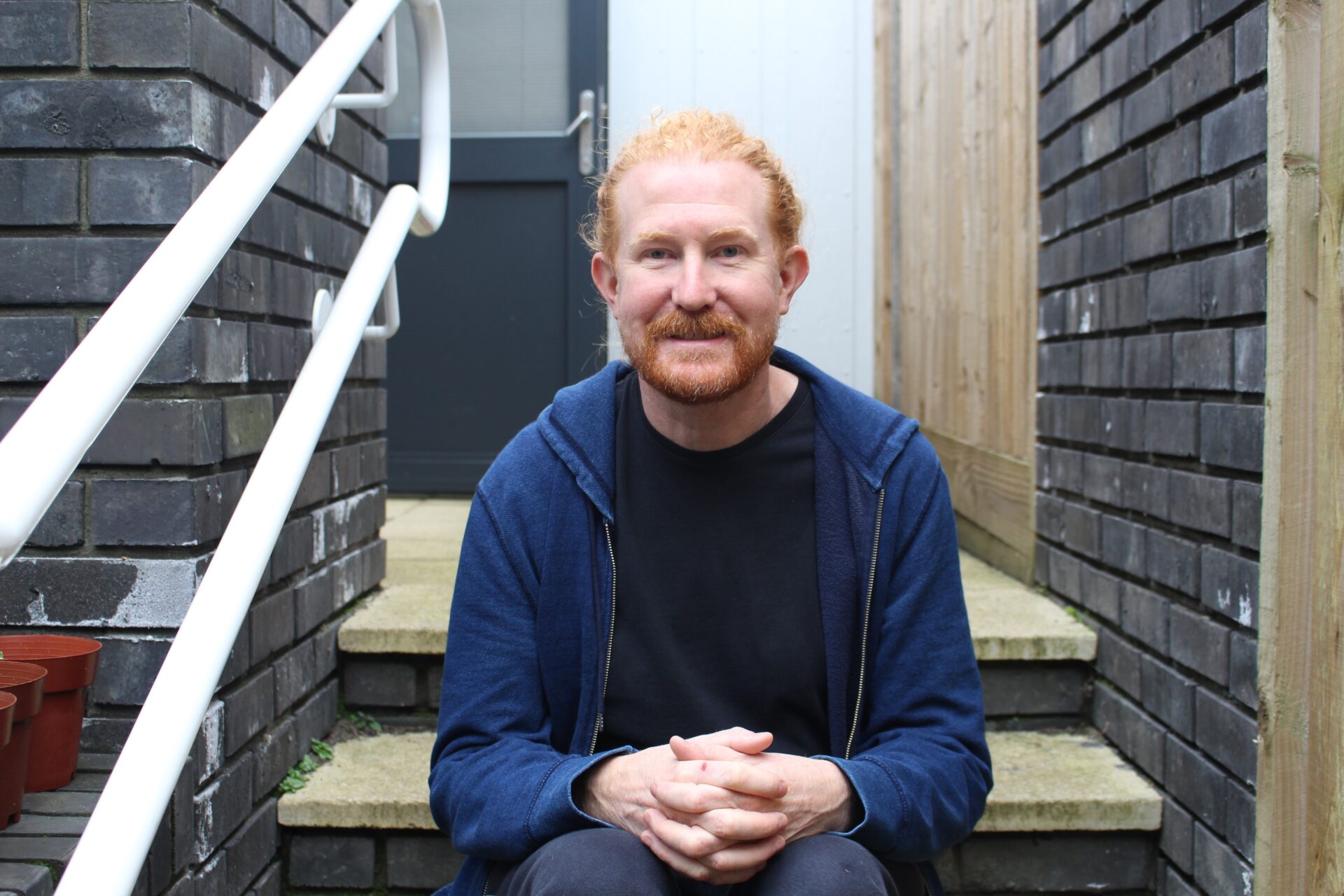“I felt I could really make a difference”
I’m Alice, a bank Peer Tutor at the Recovery College. I am autistic, and I co-developed and co-teach the Autism and Employment course. My involvement extends to other courses too; this summer, I enjoyed co-teaching the Spending Time in Nature course.
My journey to working with Southdown has been anything but conventional. Back in 2020, I began a BA in Primary and Early Years Education at the University of Sussex. Starting off behind my peers due to retaking A Levels, I fought hard to overcome personal challenges and secure a scholarship for my course. Despite my enthusiasm and aptitude for teaching, my health took a turn. I was diagnosed with Ehlers Danlos Syndrome, disrupting my plans to teach full-time.
At rock bottom emotionally, I sought guidance from my GP and was referred to Southdown’s Supported Employment service, which marked a turning point. With their help, I explored different paths that aligned with my teaching aspirations and my health needs. I became a tutor for NEET teenagers, pursued support work with learning disabilities, volunteered with the electoral commission, and completed a qualification in copywriting from the Institute of Data and Marketing. Ultimately, I struggled to find somewhere where I fit in, and balance my health and the demands of work.
Then Fiona, the Employment Specialist working with me, sent a link to a training programme for adults with autism. The idea was that I would be taught how to deliver lectures, and then would help develop and give lectures to other professionals about how they can best support the autistic people using their services. It was flexible, low hours, and, most importantly, allowed me to not just teach but also make a real difference in the care of other autistic people. It was amazing to feel a sense of purpose again, and slowly my mental health began to improve. I found a niche where I excelled, and I felt like my life had purpose again.
I then got a last minute call from Fiona – the Peer Tutor who normally delivered the Autism and Employment course was no longer available to deliver it, and would I be interested in stepping in? Of course I instantly said, “Yes!” I didn’t know a lot about the college, but I knew I loved teaching, and I had so much personal experience with the struggle of balancing health, mental health, and work, that I felt I could really make a difference. That was in March, and since then I have taught the course twice, helped out with a few others, and have thoroughly enjoyed every minute of it. I love the flexibility that the position offers, I love the independence that is encouraged by the college, and most importantly, I love being able to help people.
The Recovery Model is something special. By having Peer Tutors with lived experience collaborate with clinicians, we are able to provide a level of support I have not seen anywhere else. We can provide not just accurate information, but real empathy – we’ve been through what our students have gone through, and we’ve come out the other side.
This role not only allows me to help others but also aids in my own recovery. Through sharing my journey, I’ve found a way to turn challenges into positive outcomes, making a difference in the lives of both my students and myself.
Delivered as a partnership with the Sussex Partnership NHS Foundation Trust, and as part of the UOK Brighton & Hove network of mental health support, the Brighton and Hove Recovery College uses education in a supportive learning environment to help people with mental health challenges become experts in their own self-care and recovery. The College provides a wide range of courses which are co-produced and co-delivered by people with lived experience of mental health challenges and are delivered online or in community and educational venues across Brighton and Hove.



